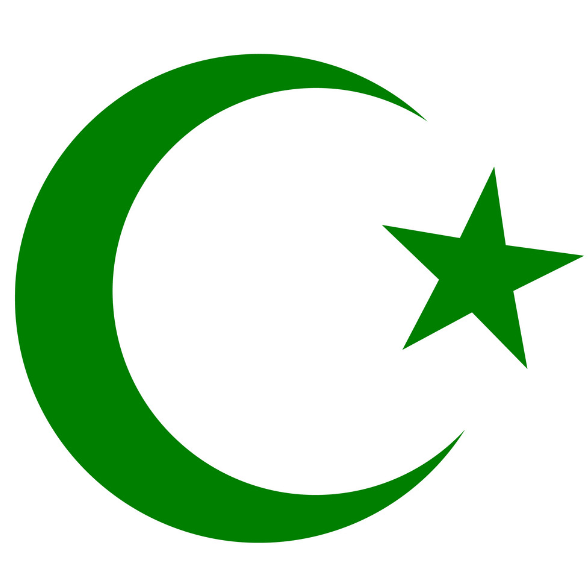Let's have a look at the Djibouti National Religion. Djibouti, a small but culturally rich country located in the Horn of Africa, boasts a diverse heritage and history that is deeply intertwined with its national religion, Islam. In this comprehensive article, we will delve into the fascinating world of Djibouti's Islamic traditions, exploring its history, practices, and significance in the lives of its people.
The Islamic Roots in Djibouti
Historical Overview
Djibouti's Islamic history dates back over a millennium, with the arrival of Islam in the region during the early days of the religion. Arab traders and explorers introduced Islam to the indigenous communities, gradually shaping the religious landscape of the region.
Cultural Influence
Islamic culture has played a significant role in shaping Djibouti's art, architecture, and way of life. The fusion of local customs with Islamic traditions has resulted in a unique cultural tapestry that defines the nation.
Djibouti National Religion in Daily Life
Daily Prayers (Salat)
Muslims in Djibouti adhere to the five daily prayers as a fundamental aspect of their faith. These prayers, known as Salat, serve as a means of connecting with the divine and seeking guidance in daily life.
Fasting (Sawm)
The holy month of Ramadan holds special significance in Djibouti, as Muslims fast from sunrise to sunset as an act of devotion and self-discipline. The Iftar, the meal to break the fast, is a communal event that strengthens bonds among the faithful.
Festivals and Celebrations
Eid al-Fitr and Eid al-Adha are two major Islamic festivals celebrated with great enthusiasm in Djibouti. These occasions mark the end of Ramadan and the annual Hajj pilgrimage, respectively, and involve communal prayers, feasting, and acts of charity.
Djibouti’s Religious Landscape
Coexistence with Other Religions
While Islam is the dominant religion in Djibouti, the nation prides itself on its religious tolerance. Other faiths, such as Christianity and indigenous beliefs, coexist harmoniously with Islam, contributing to Djibouti's cultural diversity.
Places of Worship
Mosques hold a central place in the lives of Djiboutians. These architectural marvels serve as not only places of prayer but also as community centers, fostering social bonds among the faithful.
The Significance of Djibouti National Religion
Moral Values and Ethics
Islamic teachings instill a strong sense of morality and ethics in the people of Djibouti. Concepts like compassion, charity, and justice are deeply rooted in the national psyche.
Spiritual Fulfillment
For many Djiboutians, Islam provides a profound sense of spiritual fulfillment and guidance, helping them navigate life's challenges and uncertainties.
Conclusion
In Djibouti, Islam is more than just a religion; it's a way of life, a cultural treasure, and a source of unity. Its profound influence on the nation's history, customs, and values cannot be overstated. Djibouti's Islamic traditions serve as a beacon of cultural richness and religious diversity in the Horn of Africa.
Djibouti National Religion: FAQs
- Is Islam the only religion in Djibouti?
No, while Islam is the dominant religion, Djibouti is known for its religious tolerance, and other faiths coexist peacefully.
- What is the significance of Eid celebrations in Djibouti?
Eid celebrations mark the end of Ramadan and the Hajj pilgrimage, fostering community spirit and acts of charity.
- How has Islam influenced Djibouti's architecture?
Islamic culture has left a lasting imprint on Djibouti's architectural heritage, with mosques serving both as places of worship and community centers.
- What role do mosques play in Djibouti's society?
Mosques in Djibouti are not just places of prayer; they are hubs of social interaction and community bonding.
- How does Islam impact the moral values of Djibouti's people?
Islamic teachings promote values like compassion, charity, and justice, which are deeply ingrained in the moral fabric of Djibouti.
References
- Trimingham, J. Spencer. "Islam in the Horn of Africa." Oxford University Press, 1952.
- Abubaker, Ahmed. "Islamic Architecture in Djibouti." Archnet, Aga Khan Documentation Center at MIT, 2010.
- Samatar, Said Sheikh. "Djibouti: A Somali State in the Horn of Africa." The Red Sea Press, 1994.
- "Religious Freedom Report 2020: Djibouti." U.S. Department of State, Bureau of Democracy, Human Rights, and Labor, 2020.
- "Djibouti - Culture and Religion." Global Security, 2021.
